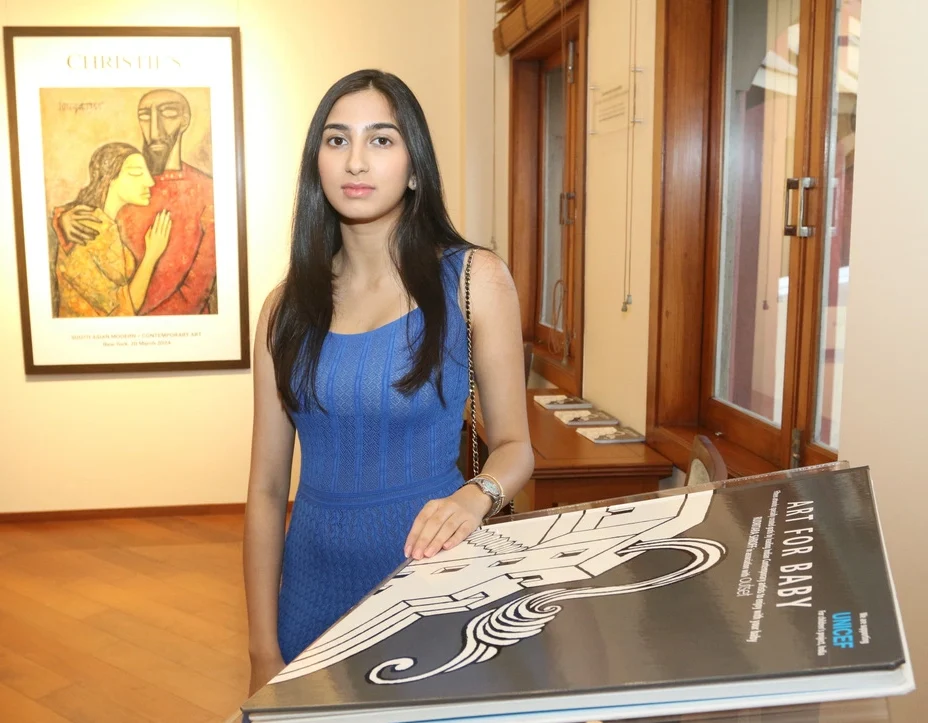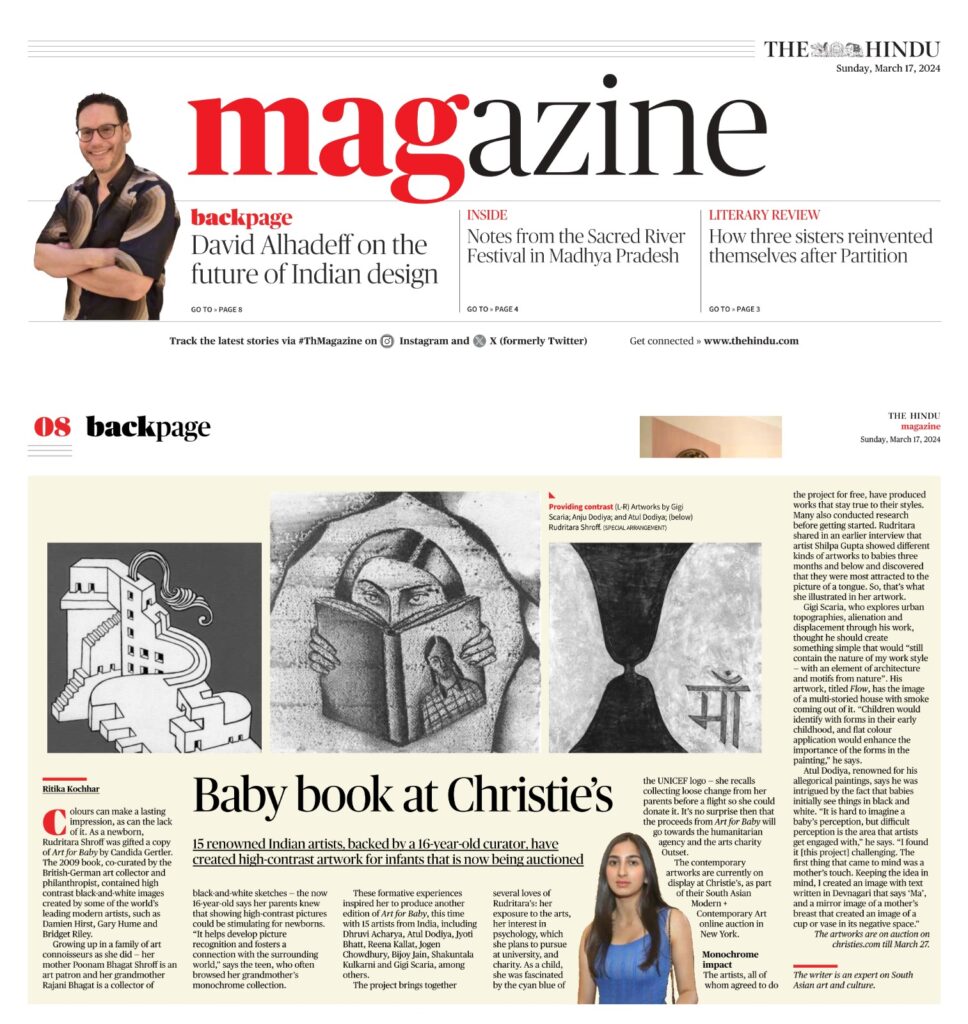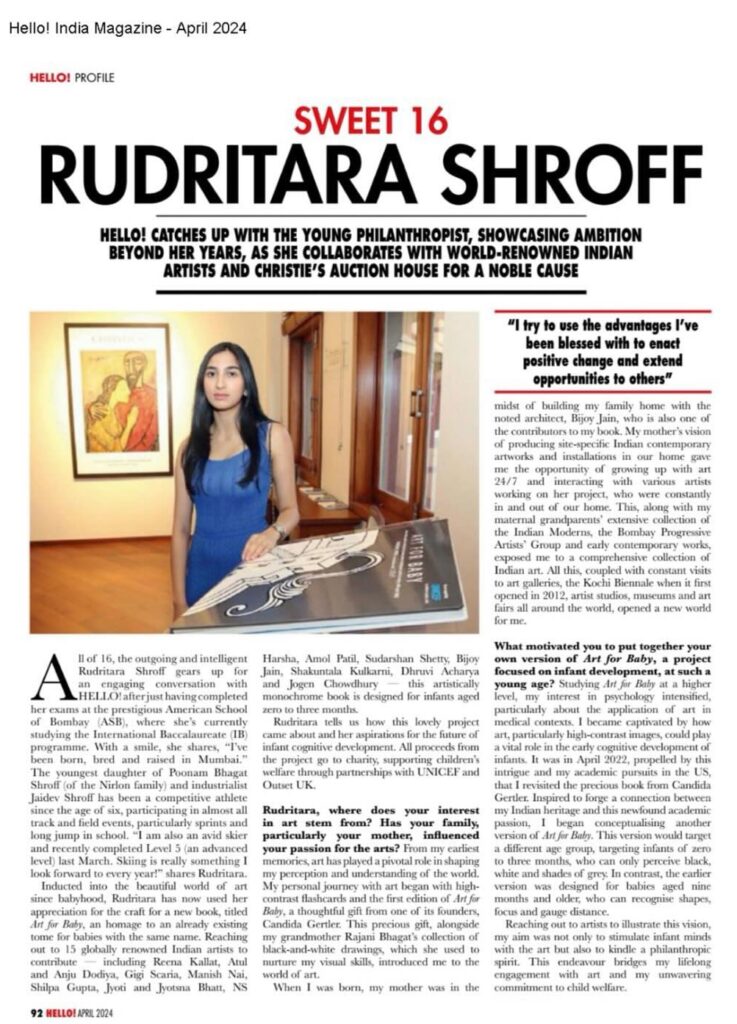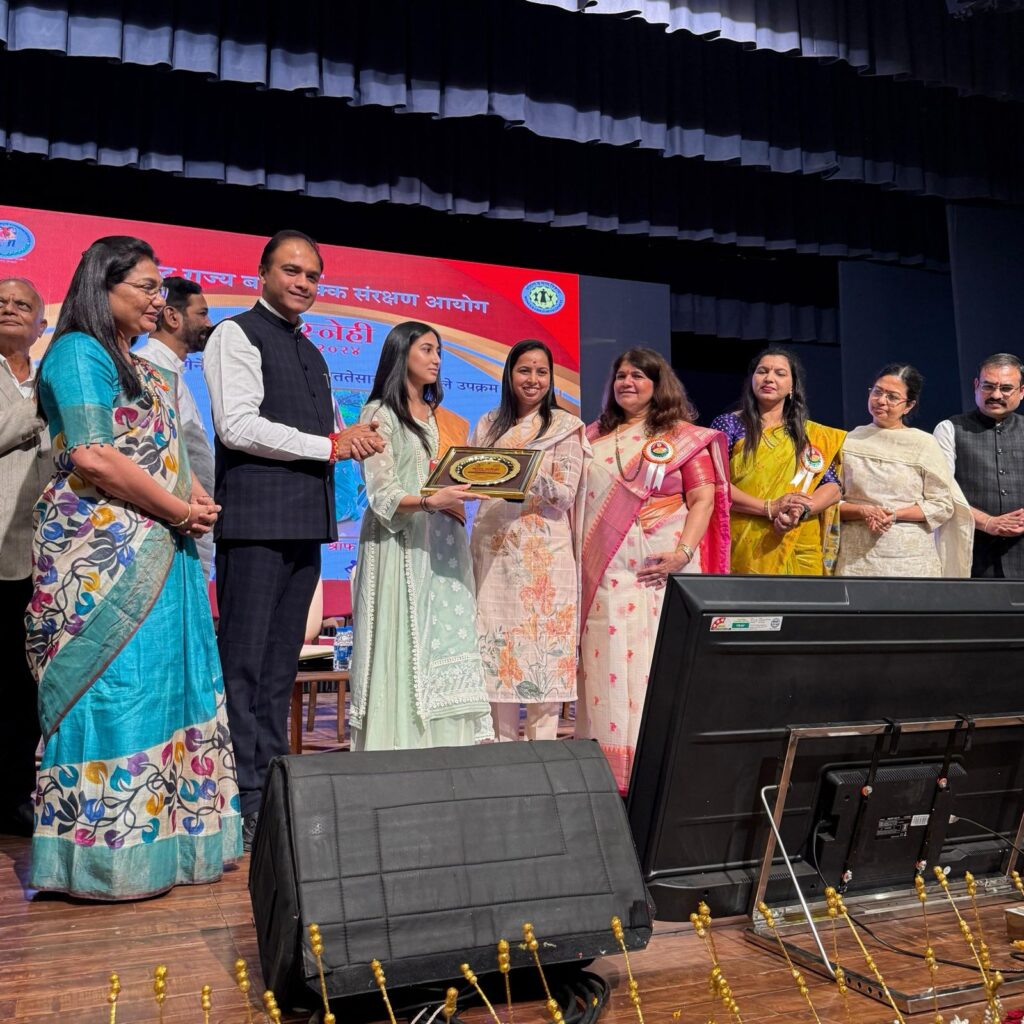
Hi! I’m Rudritara Shroff from Mumbai, India.
Passionate about developmental psychology, I’m particularly fascinated by how early experiences, especially during the first 1,000 days of life, shape a child’s emotional, cognitive, and social development. Alongside my academic interests, I enjoy skiing (IGCSE Level 5), Western ballroom dancing (IGCSE Level 5), and running track and field. Writing is another passion of mine, and I’m proud to have won the Elaine Hobson Literary Award.
I believe in blending creativity with purpose, which has driven me to design projects like the Growth Mindset Program and ‘Art for Baby,’ reflecting my commitment to fostering positive change and nurturing young minds.
Art for Baby: Transforming Childhood Development Through Art
I created Art for Baby as a 17-year-old passionate about child development and art, aiming to bridge these two worlds to make a tangible difference. Art for Baby is India’s first medically vetted art book designed to aid cognitive development in infants.
YOUNGEST RECIPIENT OF THE BAAL SNEHI AWARD
On International Women’s Day 2025, received the Baal Snehi Award, a prestigious recognition from the Government of Maharashtra, for my contributions to child development. I was the youngest recipient of this award, which was conferred by Aditi Tatkare, Minister for Women and Child Development of Maharashtra.
I was also felicitated by Chandrakant (dada) Bachchu Patil, Higher and technical education minister of Maharashtra state for her project ‘Art for Baby’.
These accolades acknowledges my project, ‘Art for Baby,’ which is India’s first medically vetted book designed to stimulate newborn cognitive development, which has raised $57,000 for UNICEF India’s children’s projects in Maharashtra.
Launched Art FOR BABY at JAIPUR ART WEEK 4
‘Art for Baby’ book was launched at the Jaipur Art Week 4 held from 27th January to February 5th in Jaipur, India.
The book also then went to be sold and displayed across art gallery booths as a part of India Art Fair 2025 in Delhi and Design One in Mumbai
Sangath Bhopal Internship: Empowering Early Childhood Development
Under the mentorship of Dr. Vikram Patel, the Paul Farmer Professor and Chair of Global Health and Social Medicine at Harvard Medical School, I educated Aanganwadi and ASHA workers in Bhopal on the importance of the first 1,000 days of a child’s life, emphasizing proper infant care to foster secure and healthy development.
Museum of Solutions: Fostering Creativity and Innovation
The Museum of Solutions (MuSo) is India’s first-of-its-kind children’s museum, dedicated to nurturing creativity, critical thinking, and collaboration. Since summer 2023, prior to its opening, I have been actively involved in shaping its vision and programming. I continue to contribute every week, helping create engaging, experiential learning experiences that inspire young minds to explore and innovate.
Carol Dweck Growth Mindset Program: Nurturing Resilient Learners
Guided by my passion for developmental psychology, I designed and implemented a Growth Mindset Program inspired by Stanford psychologist Carol Dweck, aligning with India’s National Education Policy (NEP) 2020. Collaborating with four NGO schools in Mumbai, the six-month intervention aimed to foster resilience, perseverance, and a love for learning in young children. Pre- and post-program data revealed significant shifts in students’ attitudes, showing greater openness to challenges and learning from mistakes.
Corona Quilt Project: Weaving Stories of Resilience and Hope
Amid the uncertainty and isolation of the COVID-19 pandemic, I had the privilege of contributing to the Corona Quilt Project, a large-scale community art initiative designed.



